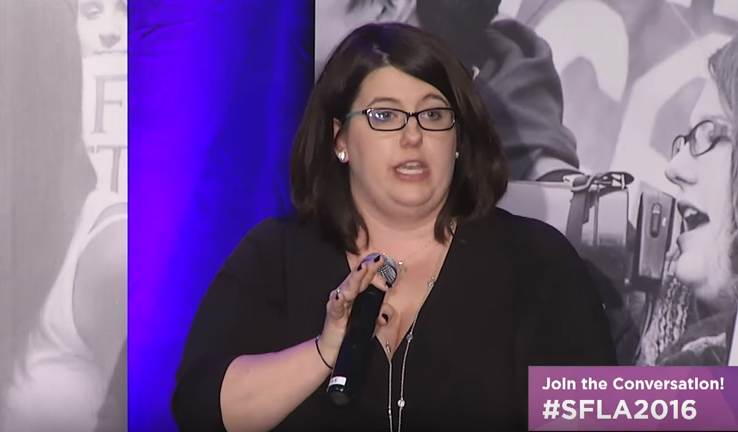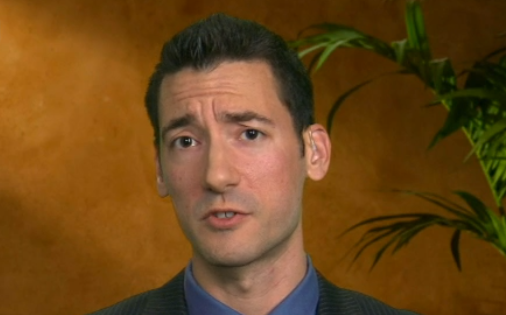Ave Maria Law School’s Monsignor Frank McGrath opened yesterday’s Law of Life Summit, a gathering of anti-choice legal activists and law students held annually before the March for Life, by praying “that abortion might end, Planned Parenthood might cease [and] Your choice for Supreme Court justice might occur.”
A few days into Donald Trump’s presidency, the activists in the room were hopeful that all of these goals might be achievable in what one called the new “alternate universe.”
Chief among the hopes was that the movement’s campaign against Planned Parenthood, escalated by the release of undercover videos in 2015, the subsequent organizing of a House investigative panel to target the health care provider, and President Trump’s campaign promise to sign legislation stripping federal funds from the group, would lead to Planned Parenthood’s collapse.
Speaking on a panel titled “Making the Case for Prosecution of Fetal Body Parts Traffickers,” the House panel’s chief counsel, former Justice Department attorney March Bell, made it clear that while his committee was ostensibly convened to investigate fetal tissue procurement practices—and did extensively delve into that area— one of its ultimate goals was to find ways to weaken Planned Parenthood.
Bell said that still-unreleased videos taped by David Daleiden, the anti-choice activist who has attempted to show that Planned Parenthood sells “baby body parts” for profit, show representatives of the group revealing that “clinic budgets are quite fragile,” a weakness he said could be exploited by throwing lawsuits at Planned Parenthood and its affiliates.
“So, because their business model is fragile,” he said, “any interference in their cash flow that we can bring through any kind of lawsuit—violating any local health regulations, these lawsuits about people not being cared for when there’s a perforated uterus, and so on—can shut down a whole state or a whole group of clinics. It is remarkably fragile.”
He noted that the report his panel produced had already been used on the House floor in debates involving pulling Planned Parenthood funding.
Bell revealed that his investigators relied on “lots of phone calls with David Daleiden” and had also talked with Operation Rescue’s Troy Newman and Life Dynamics’ Mark Crutcher, whom he noted “pioneered in this field.” Newman and Crutcher are extremist anti-choice activists, both of whom worked with Daleiden on his Planned Parenthood project.
Newman gave brief remarks at the event; Albin Rhomberg, another activist who was instrumental in launching Daleiden’s project, was also present and asked a question of the Planned Parenthood panel.
After Bell reviewed the House committee’s findings, Alliance Defending Freedom’s Steve Aden said that Bell’s “prosecution” of Planned Parenthood would have to continue in Congress and state legislators. “You have heard the opening statement from a master prosecutor today,” he said. “And that prosecution will continue, politically. It will continue in election places, it will continue in statehouses across the country, it continues in the big House up the hill here. There’s a lot coming together in the pro-life movement right now.”
Aden added that “the image of the house of cards comes to mind,” noting that Trump has already restored the global gag rule, also known as the Mexico City Policy, cutting off foreign aid funds to groups that provide information on abortion and that legislation defunding Planned Parenthood might soon be on the president’s desk.
Steve Aden, ADF
Referring to a report ADF produced with the Susan B. Anthony List’s Charlotte Lozier Institute alleging “waste, abuse, and potential fraud” involving Planned Parenthood Medicaid reimbursements, Aden said that the health care provider has “concluded they’re immune to scrutiny, but they’re not. So the more that we look at them, the more, as we said, that house of cards teeters, and it looks like it’s about to fall. Once that funding starts to go away and isn’t replaced, I don’t think, we’ll see even more and more abortion facilities close, even more than we have seen.”
He added that if Texas succeeds in cutting off Planned Parenthood from Medicaid funds, “Planned Parenthood affiliates across the country could fall like dominoes.”
The Charlotte Lozier Institute’s Catherine Glenn Foster, who was on the panel with Bell and Aden, noted in response to an audience question about individuals or state and local governments suing Planned Parenthood for “defrauding” the government, that “we are definitely hopeful that such litigation might be more possible now with a friendly attorney general that might be willing to take it over.”
Other speakers at the event rejoiced in the other possibilities that Trump’s presidency might present for their movement. John-Henry Westen, the editor of LifeSiteNews, declared that “America is coming alive in a way that we haven’t seen for 40 years or more,” citing Trump’s criticism of the media for supposedly failing to cover the March for Life.
David Bereit, who recently retired as the head of the protest group 40 Days for Life, said that at the morning’s protest in front of a D.C. Planned Parenthood, “several of us turned to each other and we said, ‘Do you feel like we woke up this January and all the things that are happening right now, in an alternate universe?’” He also cited Trump’s comments on media coverage of the March for Life, long a complaint among anti-choice activists.
Former Breitbart reporter Alex Swoyer, who recently moved to The Washington Times, spoke on a panel of younger women in the anti-choice movement. She said that when she was covering Trump’s campaign, people would ask her what she thought of the sincerity of Trump’s “pro-life” beliefs. She said that while Trump “wasn’t educated on the issue” early in his campaign and said nice things about Planned Parenthood because he had seen positive coverage of the group from the news media, he has since made an effort to meet with and get information from anti-choice leaders.
Swoyer reminded the audience that the anti-choice movement’s decision to get behind Trump, in large part because of the Supreme Court vacancy that the Senate GOP held open for the new president to fill, was critical to his success.
“Going through this whole campaign, election cycle, I will say that I think the time for the pro-life movement is now,” she said. “Some people I’ve talked to, and I share the same opinion, that I don’t know if Donald Trump would have won the election if Justice Scalia didn’t pass away. I think that there are so many people that turned out on that basis. … And I do think he is devoted to filling that seat with someone who would be committed to overturning Roe v. Wade. So we’ll see what happens. But I definitely think that with those videos that came out and with the passing of Justice Scalia, that the pro-life movement did have an impact in this election.”








